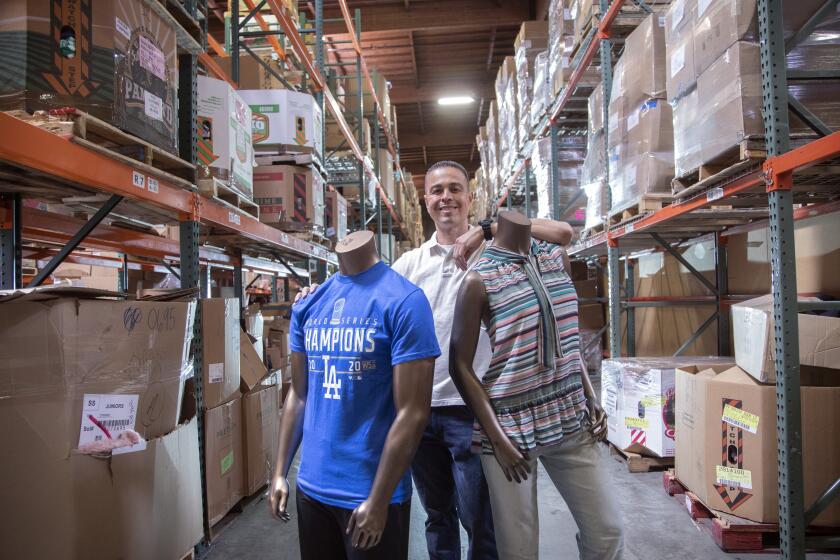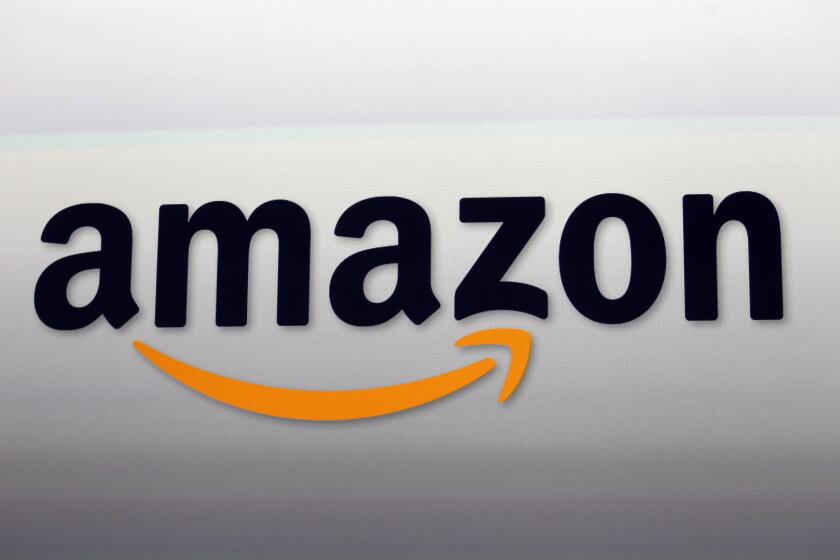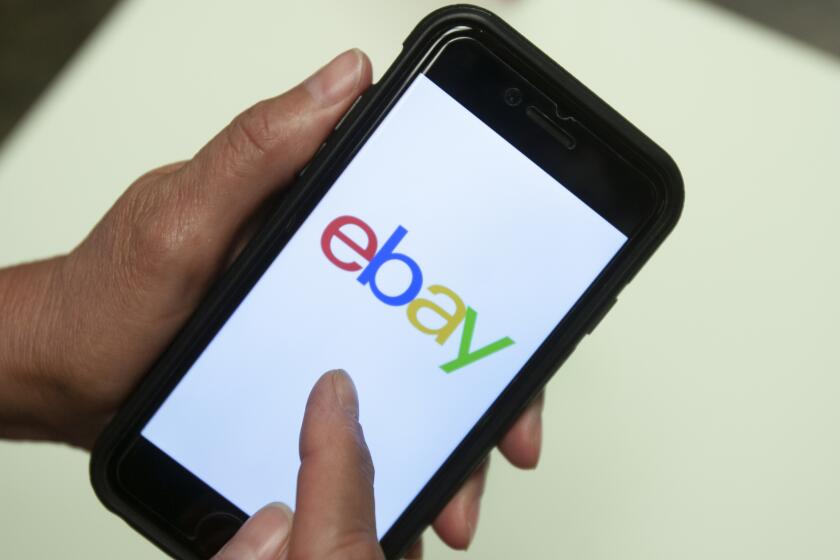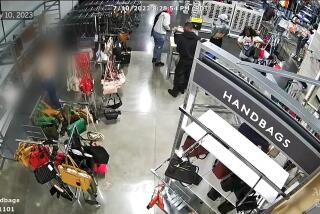Amazon ‘drop-shipping’ resellers work a lollipop hustle that cost this family candy maker millions

Mitchell Owens recently discovered that mysterious entities were selling bulk orders of Dum Dums lollipops on Amazon for a couple of bucks less than the price charged by his company. Owens, who runs e-commerce operations for Spangler Candy Co., was concerned the sweets could be potentially dangerous counterfeits.
So he placed an order from one of the Amazon merchants. A few days later a 500-pack of lollipops arrived on his doorstep. They weren’t counterfeit and — strangely — had been shipped directly from Walmart Inc.’s Sam’s Club.
Owens had stumbled upon a price arbitrage scheme on Amazon.com Inc.’s imperfectly policed online marketplace.
The hustle works like this: Sellers, often guided by how-to tutorials on YouTube, TikTok and Instagram, scour the internet for products with lower prices than on Amazon. Then they post the items on the website, wait for someone to place an order, purchase the product from another retailer, have it shipped directly to the customer and pocket the difference.
The rogue Amazon merchants are selling a wide array of items, including breath mints, cereal, baking powder and feminine hygiene products.
They never actually touch the merchandise, a practice known as drop-shipping. The scheme is a violation of Amazon’s policy, which prohibits merchants from shipping products from other retailers, but the perpetrators are betting that they’ll elude detection amid the clutter of the company’s vast web store.
Instant soup mix, dresses, sneakers, appliances and so on. Buy common consumer items cheap; resell for more, maybe much more. COVID lockdowns supercharged it.
With Dum Dums, the sellers are leveraging a yawning price gap between Sam’s Club, which rewards its members by selling a deeply discounted 500-pack for about $15, and Amazon, where Spangler sells its exclusive 400-pack for about $26. Sellers can charge $25 on Amazon to lure price-conscious shoppers and pocket about $6 after subtracting Amazon fees.
Amazon shoppers might find it odd receiving a box from Sam’s Club, but they get an extra 100 lollipops and so are less likely to report the issue.
At first, the lollipop drop-shippers were a rare occurrence. Spangler would complain to Amazon, which typically suspended the seller a week later.
But in the last six months, the number of merchants selling Dum Dums on Amazon has proliferated so quickly that Spangler can’t keep track of them. Owens believes that a concurrence of forces — the work-from-home trend, rising prices and online tutorials — has prompted more people to seek side hustles.
Bloomberg identified about 20 merchants selling 400-packs of Dum Dums on the site in July, but that number is always changing as sellers get booted off or new ones start up.
“It became a tsunami we can’t control,” Owens said. “There’s an entire cottage industry encouraging people to start their own business selling on Amazon and drop-shipping from other retailers.”
Amazon.com Inc. is offering to compensate customers for injuries caused by goods from its third-party sellers, a guarantee that follows numerous lawsuits seeking to hold the online retailer responsible for dangerous products purchased from its digital shelves.
Complaining to Amazon no longer works because by the time Spangler has a seller suspended, more have popped up to replace them. It’s too expensive to have attorneys police the problem, and consultants who help companies navigate the online marketplace have been of little help.
Spangler, a 115-year-old family business that also makes candy canes and Sweethearts at its factory in Bryan, Ohio, says the Dum Dums racket has cost it millions of dollars in lost business and legal fees — real money for an enterprise of its size.
“Amazon is too big to listen to anyone,” Owens said. “If you actually get a hold of someone, they’ll say, ‘I don’t know what to tell you. Even though it’s violating our policy, there’s nothing we can do.’”
In an emailed statement, Amazon spokesperson Nathan Strauss said the company has long banned sellers from shipping products from other retailers to customers.
“We monitor a variety of data and signals to detect, investigate and enforce violations of this policy,” Strauss said. He declined to provide further details about how Amazon enforces the policy or how many merchants have been suspended for violating it.
Sam’s Club, which lets drop-shippers ship products for free to 10 addresses, declined to comment.
Beverly Hills Car Club and co-owner Alex Manos have built a following, but lawsuits accuse the dealership of selling vehicles with undisclosed damage, defective parts or other issues.
U.S. shoppers this year will spend almost $400 billion on Amazon, which captures more than $1 for every $3 spent online, according to Insider Intelligence Inc. That market dominance makes the online marketplace a convenient place for brands to reach shoppers.
The reach also makes Amazon.com an ideal hangout for unscrupulous people looking to make a quick buck. Amazon is constantly battling counterfeits, fake reviews and even employees taking bribes from merchants buying favorable treatment.
But the company’s efforts are largely reactive, and the problems persist because anyone can create a business selling virtually anything on Amazon with little more than an email address. The Dum Dums racket doesn’t appear to hurt Amazon because it still makes a commission on each sale even if the product is sourced from Sam’s Club.
The drop-shipping method practiced by the Dum Dums sellers is a twist on a long-standing version of retail arbitrage.
For many years, enterprising Americans have been buying up clearance merchandise at brick-and-mortar chains and reselling it at a markup on Amazon and EBay Inc. These folks must visit multiple stores and pay upfront for the inventory and shipping costs.
Posting an item on many platforms takes a while. List Perfectly’s software can simultaneously fill fields in up to 12 online sales sites
By contrast, drop-shipping can be done from home without spending any money until orders come through. Proponents advocate using store credit cards with cash-back bonuses to sweeten the rewards. As one TikToker pushing the drop-shipping method said: “It costs you zero dollars to list a thousand items on Amazon.”
It’s hard to assess the size of the phenomenon, but it appears to be growing. Monthly Google searches for “Amazon dropshipping” hit 22,200 in June, up 50% from the previous year, according to BuzzSumo, a social media analytics tool.
And how-to videos are proliferating online.
In one posted on YouTube last year, someone calling himself “ecomTom” shows how easy it is to find ceiling fans that are cheaper on Lowe’s website, create an Amazon account to sell them, ship the fans from the home improvement chain to the customer and pocket the difference. EcomTom, whose video generated almost 200,000 views, says those following his system can make between $5,000 and $10,000 a month.
His and other free online videos often serve as commercials for other paid services, including classes and consulting.

Spangler e-commerce chief Owens suspected that many of the people selling Dum Dums on Amazon got the idea from an entity called Dragons E-commerce, which posted a YouTube video in April demonstrating how to find deals on Sam’s Club for products such as Starbucks coffee, Bounty paper towels and Tide Pods laundry detergent and then resell them on Amazon for a profit.
Ali Haider, who makes the Dragons E-commerce videos in Pakistan, told Bloomberg that he has clients in the U.S., Mexico and Canada to whom he teaches his drop-shipping methods for about $250 a class.
“You can do this from anywhere in the world,” he said. “Following this model is not a problem.”
Haider, whose video had nearly 4,000 views, knows he’s violating Amazon’s policies, but said the company takes action only if customers complain. He said he has had only one account suspended, after a customer griped about receiving a product late.
Haider said he has never sold Dum Dums or encouraged any of his clients to sell the lollipops. “When we sell branded products, in my entire time, I have never received any messages from brands.”
Most merchants drop-shipping Dum Dums have obscure names such as MZPRS Services or MK Investments, which can make finding the owners arduous.
Etsy is one of the oldest and best-established sites to sell art, crafts and hand-made items.
Matt Priest of Sandy, Utah, was selling the lollipops on Amazon under the business name MattP Store. Reached by telephone July 6, Priest said he wasn’t aware he was selling Dum Dums online. He said he invested $15,000 six months ago with a group that helps would-be entrepreneurs set up online businesses. He declined to identify whom he invested the money with and said he had made back $45 so far.
“They said they have other clients who have been doing this longer who make thousands of dollars a month,” Priest said. As of July 20, his store was no longer selling Dum Dums but was offering seven other products, including a bulk box of Chex Mix snack mix and a 15-pound bag of Arm & Hammer baking soda. Priest said he was vacationing and didn’t answer subsequent calls.
Joseph Mesi of Sewell, N.J., was selling Dum Dums on Amazon under the business name JRM Apex Sales. Reached by phone July 6 and asked about Dum Dums, he said, “That’s one of the things I’m selling on there, yeah. Sam’s Club? Yeah, that’s one of the places I drop-ship from.”
Mesi said he was busy and ended the call. Reached again July 18, he said, “I don’t really want anyone to know my business or what I’m doing. I’m a private person.” Mesi’s store was no longer selling Dum Dums as of July 20. He was selling 43 other products, including 20 Mule Team Borax, kitty litter, Life Savers mints, 20-pound bags of rice and jumbo packs of Always brand maxi pads.
Spangler’s Owens said he has been able to reach merchants in the past but found it a waste of time.
“I’ll explain who I am, say you’re violating this policy and ask them to please stop,” he said. “Twenty-five percent of them say, ‘Oh, we’re sorry. Please don’t write a bad review. We’ll get off the listing.’ The other 75% say ‘screw you,’ and we have to wait a week for Amazon to go through its process to get the seller removed. That’s why it’s so overwhelming. You get down to four or five sellers and the next day there’s another 20.”
To help solve the issue, Spangler enrolled in Amazon’s “transparency” program, created to let companies track products throughout the supply chain. More than 23,000 brands joined the program last year, according to Amazon, paying for a unique QR code for each item sold on the marketplace.
Spangler, which pays 5 cents per QR code, has spent thousands of dollars so far and is seeing some improvement, but Owens worries that drop-shippers will find a workaround.
Meanwhile, he continues ordering Dum Dums to prove to Amazon that another unauthorized seller has popped up. It happens so routinely, Owens has set aside part of his garage for all the boxes arriving from Sam’s Club.
“We’ve been trying so hard to solve this with Amazon,” he said. “It’s just too bad they don’t work more closely with manufacturers. I wish there was a better relationship.”
More to Read
Inside the business of entertainment
The Wide Shot brings you news, analysis and insights on everything from streaming wars to production — and what it all means for the future.
You may occasionally receive promotional content from the Los Angeles Times.















